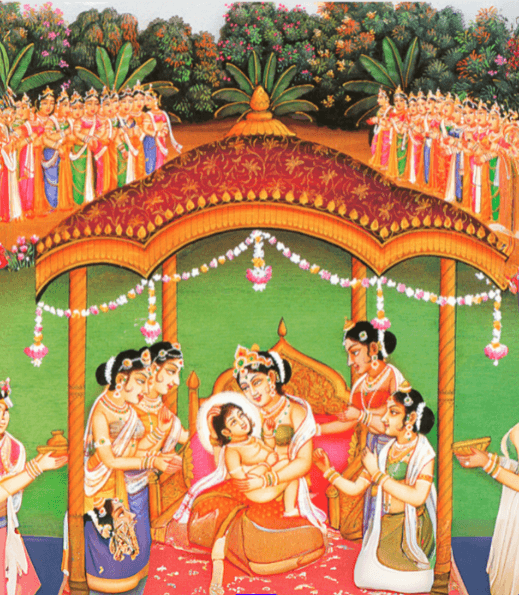Ep-2: Birth Of Mahavir
Queen Trishladevi took meticulous care of the child during her pregnancy. During this period, as if reflecting the greatness of the child, the queen began to harbor lofty aspirations, known as "dohads." She wished for universal non-violence, charity for the needy, reverence for saints, and worship of gods, among other desires. King Siddharth enthusiastically supported her in fulfilling these aspirations. Thus, nine and a half months passed.
At a time when grains were plentiful, birds sang joyfully, gentle winds blew, and people celebrated spring festivals, on the auspicious day of Chaitra Sud 13 (the 13th day of the bright half of the 6th lunar month), when the moon aligned with the Uttaraphalguni nakshatra (constellation), Queen Trishladevi gave birth to a healthy son.
Upon receiving news of his son's birth, King Siddhartha was overjoyed. He generously rewarded the messenger maid, freeing her from poverty for life. He released all prisoners, cleared debts, and organized ten days of grand celebrations in the city. During this time, gods were worshipped, elders were honored, relatives were paid homage, and charity was given to the needy. Even Indra, the king of the gods, and other celestial beings descended from heaven to participate in the celebration.In the presence of friends, relatives, officials, and family members, the newborn was named "Vardhman," as previously decided.
He had an elder brother Nandivardhan and an elder sister Sudarshana. Prior to Vardhmankumar's birth, King Siddhartha's lineage followed the "shravak dharma" (one of the two dharmas prescribed by a Tirthankar, namely “Sadhu dharma” and "shravak dharma") of the tradition of the 23rd Tirthankar, Shree Parshwanath. Vardhmankumar, a radiant and courageous child from birth, bore all the auspicious markings on his body.
